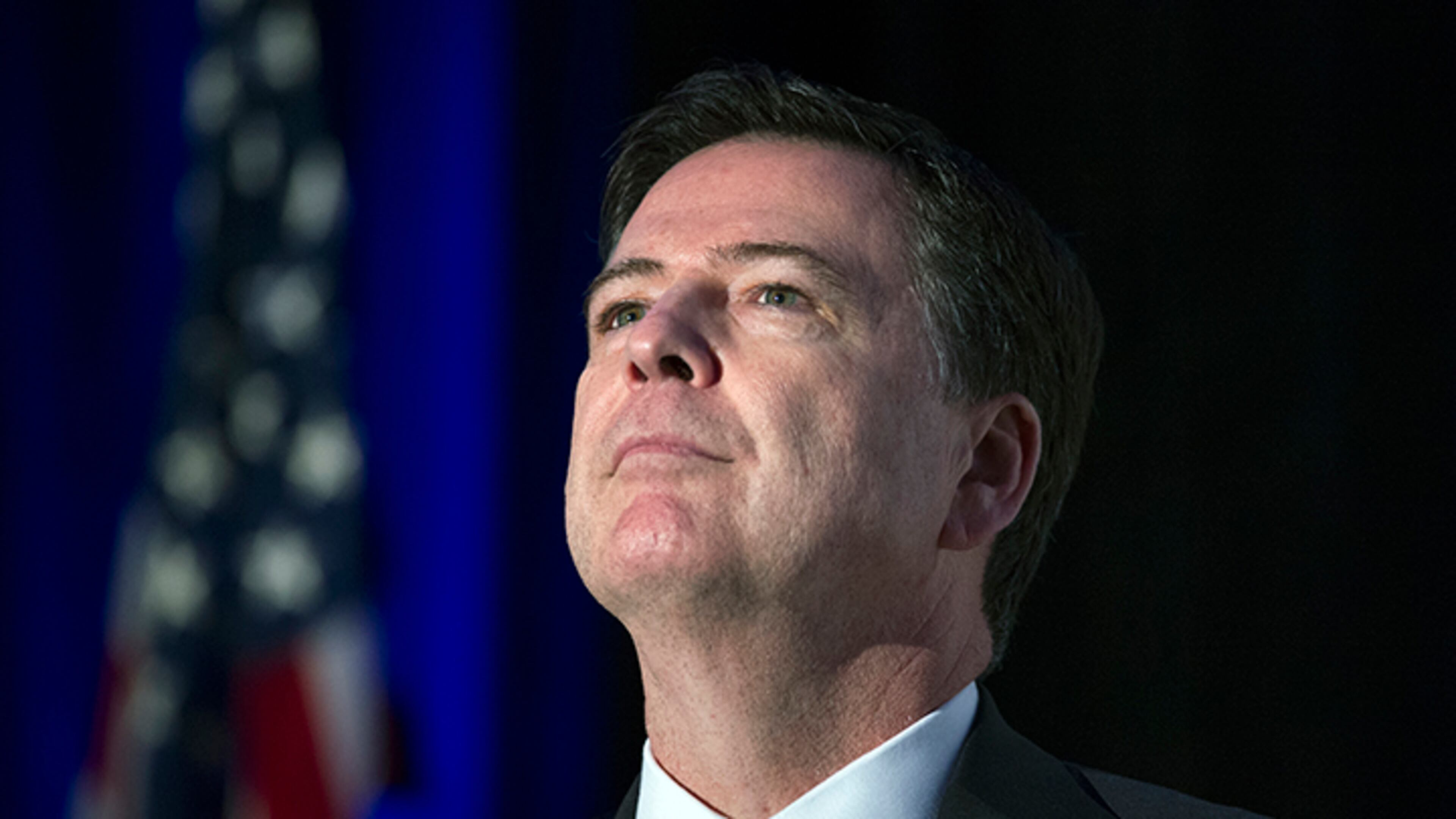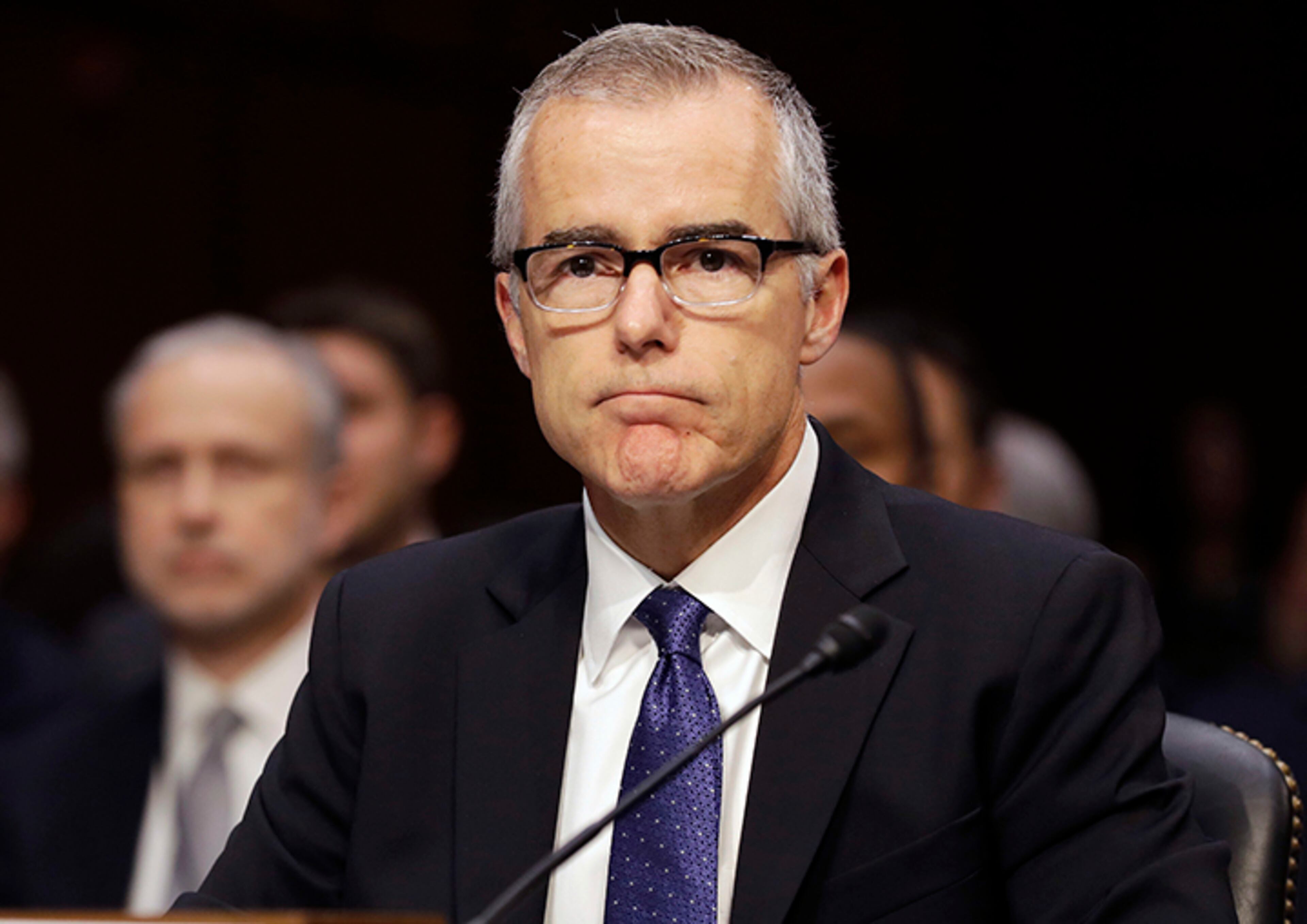Trump’s premium on loyalty could be a factor in search for FBI director

The job description for FBI director under President Donald Trump includes an unusual requirement: personal loyalty to him.
Just after Trump took office, the new president summoned James Comey to the White House and asked him to pledge loyalty to him, according to an associate who's spoken directly with Comey in the past few days. Comey declined, instead telling Trump that he would always be honest, according to the associate.
While Trump denies making that request of the FBI director, whom he fired last week, the president has shown that he considers personal loyalty a paramount concern in staffing government, just as he did in his private business. For example, White House approval of Treasury Secretary Steve Mnuchin's choice to be the department's top lawyer was delayed because the attorney, Brent McIntosh, had Twitter postings with links to articles criticizing Trump.
Key positions not filled due to loyalty criteria
Loyalty screening is one reason Trump is behind in staffing key positions in Cabinet agencies. He had nominated only 73 people for Senate-confirmed positions by May 3 compared to the 193 that President Barack Obama nominated over the same period, according to the Partnership for Public Service.
Trump came to value personal allegiance above nearly any other quality as he persevered through his business, financial, and political battles as a New York real estate developer, longtime associates say. Asked during a 2014 speech about the trait he most looks for in an employee, his answer was unequivocal: loyalty.
Guarding against political interference
But the federal government isn't a family business. And rather than fidelity to political patrons, the culture of the justice system and federal law enforcement traditionally has stressed commitment to the rule of law, the Constitution, and the pursuit of investigations without political interference.
The FBI in particular has jealously guarded its independence, a principle embodied by the 10-year term for its director that's supposed to insulate the agency from presidential meddling. Mark Felt, who was FBI associate director under President Richard Nixon, said he was motivated to reveal the Watergate cover-up as the Washington Post's Deep Throat source because he thought FBI Director Patrick Gray, a Nixon appointee, was subjugating the agency's independence to protect the president.
Comey replacement faces loyalty question
Any nominee to replace Comey will confront cross-currents between Trump's insistence on loyalty and demands for a commitment to independence — both from senators whose votes he or she will needs for confirmation, and an FBI rank and file whose confidence must be gained to effectively manage the agency.

When acting FBI director Andrew McCabe appeared before a Senate committee last week, its members sought — and received — assurances that he would notify them if Trump tried to interfere with the agency's investigation of Russian meddling in the U.S. election.
That challenge is sure to confront potential successors to Comey. Among the candidates Trump is considering are former Republican House Intelligence Committee Chairman Mike Rogers; former New York City Police Commissioner Ray Kelly; Republican Congressman Trey Gowdy of South Carolina; Senate Republican Whip John Cornyn of Texas; Larry Thompson, a former George W. Bush deputy attorney general; and Alice Fisher, a former assistant attorney general under Bush, according to a White House official.
Others under consideration include Michael Luttig, executive vice president of Boeing and a former federal appellate court judge; Michael Garcia, a New York state Court of Appeals associate judge; John Suthers, mayor of Colorado Springs, Colo., Paul Abbate, an FBI executive assistant director; and McCabe, the acting director, the official said.
Allegiance to the Constitution
Presidential historian Robert Dallek said Trump's predecessors have mostly avoided explicit demands for pledges of loyalty for practical political reasons, even beyond the historical principle that high officials' first allegiance should be to the Constitution and country rather than an individual.
"You don't want to do that because it shows you as weak," Dallek said. "If you have to command that degree of loyalty it calls into question your level of leadership."
The difference is that Trump is a blunt businessman, said Chris Ruddy, a longtime friend of the president.
"He isn't a lawyer. Lawyers tend to look into every potential pitfall and problem. He is a bold, action-oriented guy," Ruddy said. "As president, there are more political implications for everything he does. I'm sure he is discovering that and it's proven to be a bit surprising or a source of frustration."
Giuliani defends Trump’s position
Former New York Mayor Rudy Giuliani, a Trump ally, said the president "absolutely" feels that loyalty to him is secondary to loyalty to the country. "President Trump without a doubt understands that," Giuliani said. "I don't have any question about that, knowing him for the number of years I've known him. He's a very patriotic American."
Trump has said he fired Comey because the FBI director wasn't "doing a good job" and was a "showboat." That was after Vice President Mike Pence and White House spokeswoman Sarah Huckabee Sanders said the dismissal came on the recommendation of the deputy attorney general.
Proven allegiance to Trump is among the most valuable currencies within the administration. Those closest to him at the White House include his family and a few of his most loyal employees. Trump's son-in-law, Jared Kushner, is widely believed to be his most trusted adviser by those inside and outside the White House, and his daughter Ivanka Trump has an office near his in the West Wing.
And when it came time to fulfill the sensitive task of relieving Comey of his post, the president turned his former private head of security and personal bodyguard, who's been with Trump since 1999. The dismissal letter was delivered to FBI headquarters by Keith Schiller, who's now in charge of Oval Office operations.

